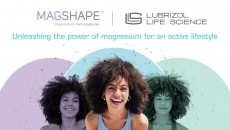Vitamin E may blunt heart health benefits of exercise, suggests study
The research, published in Nutrition, Metabolism and Cardiovascular Diseases, reports that whilst exercise training is known to reduce the risk of heart disease, it is also known to induce oxidative stress that plays a role in the reduction of favourable lipid, markers of oxidative stress, and inflammation. The research team tested whether supplementation with vitamin E – a powerful antioxidant – reduced the negative effects of exercise induced oxidative stress.
“Interestingly, vitamin E didn’t demonstrate favourable effects on the level of oxidative stress and inflammation associated with exercise,” said the researchers, led by Professor Srinivasan Parthasarathy from Ohio State University, USA.
Heart disease
Oxidative stress and inflammation plays a major role in the development of atherosclerosis induced coronary artery disease (CAD) – the leading cause of mortality in the Western world.
Exercise is known to reduce the risk of CAD, however, it may also paradoxically promote oxidative stress, free-radical formation, lipid peroxidation and vascular tissue injury.
“The oxidation theory of cardiovascular disease appears to be widely accepted, yet there remains an obvious inconsistency between it and the benefits associated with exercise induced oxidative stress,” said Parthasarathy and his colleagues.
They noted that although trained athletes receiving antioxidant supplements show signs of reduced oxidative stress; “until research fully substantiates that the long-term use of antioxidants is safe and effective, the recommendation for physically active individuals to ingest a diet rich in antioxidants will remain questionable.”
“The purpose of this study is to examine the role played by exercise induced-oxidative stress and vitamin E supplementation on inflammation and oxidative stress markers,” they explained.
Study details
Parthasarathy and his team recruited 455healthy men and women were for a 2-month aerobic/cardiovascular exercise program. The volunteers were randomly assigned to receive either a soft gel vitamin E or placebo (800 IU), and required to give blood at 0, 2, 4 and 8 weeks of exercise.
They reported favourable trends among both of the randomization groups were observed in lipids, and some of the oxidative stress and inflammatory markers.
However they noted that vitamin E supplementation did not show significant changes in the levels of lipids and markers of oxidative stress and inflammation, compared to the placebo.
Source: Nutrition, Metabolism and Cardiovascular Diseases
Published online ahead of print, doi: 10.1016/j.numecd.2011.03.002
“Vitamin E differentially affects short term exercise induced changes in oxidative stress, lipids, and inflammatory markers”
Authors: M. Garelnabi, E. Veledar, J. White-Welkley, N. Santanam, et al












